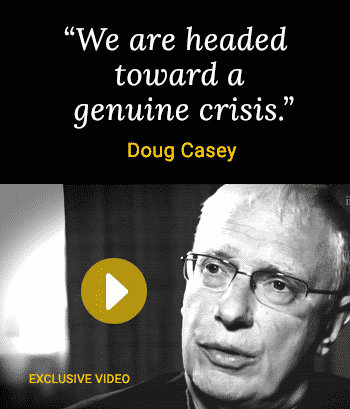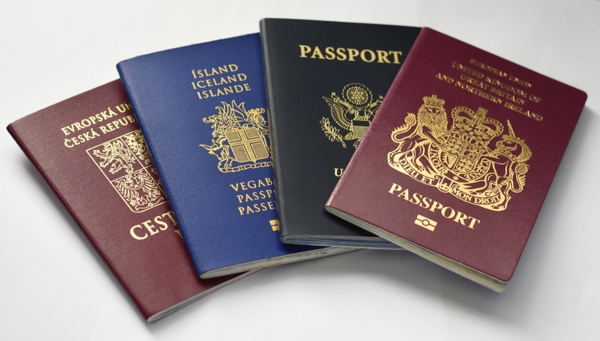Get Ready for Crazy

Recently, the Honduras homes and businesses of the family of Jaime Rosenthal were raided by the Honduran government. The properties themselves were seized and other assets taken. The family-owned bank was also seized and has been forced into liquidation, creating potential financial crisis for its 220,000 clients.
Throngs of angry clients, unable to go about their personal and professional business, have blocked surrounding streets, demanding the release of their savings.
In response, the government has promised that each depositor will have the opportunity to withdraw up to US$9,600 from other banks, beginning with the smallest depositors.
At first glance, those of us who live in the First World may regard this sort of crazy seizure as typical Third World governmental behaviour, but, in recent years, the First World has been changing. We’ve witnessed banks and governments confiscating depositors’ funds, increasing capital controls, and instituting asset forfeiture laws that have turned police departments into looters. They’ve created dramatically increased powers for all authorities, leading the populace to live in fear of detention or arrest for the smallest perceived infraction.
Some First World governments have taken a decidedly Third World turn.
And in this instance we see an ironic twist: The raids in Third World Honduras were a direct result of the legalised shakedowns that are occurring in the First World.
With the understanding that the U.S. government now seizes the assets of those they charge with a crime (and sometimes with no charge having been made), the government of Honduras undertook their seizure of the Rosenthals’ assets as a preemptive act, after one of the Rosenthals had been arrested in the U.S.
In essence, what we’re seeing is one government acting in a totalitarian manner to preempt another government acting in a totalitarian manner. Worse, the latter government is that of the U.S., once regarded as the leader of the Free World.
In discussing the event with a colleague in Honduras, I was advised that, as she is British, she has come to assume that the First World, into which she had been born, was more developed, more civilised than the Central American country in which she now resides. Although she was aware of the 2013 bank confiscation in Cyprus and has heard rumblings of new restrictive laws in the EU and U.S., she had not pieced together the fact that, whilst Third World countries continue to develop, the First World is going in the opposite direction and is beginning to pass the Third World level on their way down.
| Recommended Links | ||||||
|
||||||
| — | ||||||
The First One to Make the Grab Gets the Spoils
The Honduran government said in a statement that it conducted the raids and closed the bank because it “wants to prevent the transfer of assets during the investigation.”
It would seem that they were content to leave the future of the Rosenthal businesses to the free market, but were not willing to allow the U.S. government to seize substantial assets that make up a part of the Honduras economy. The choice, then, was to either allow the U.S. plunderers to seize assets located in another country, or to become the plunderers themselves. In essence, “I don’t wish to see my neighbour robbed, but if I know someone’s coming to my neighbourhood to rob him, I’ll rob him myself first.”
If this were to be the only incident of its kind, it wouldn’t be worth the effort to provide comment. However, it may well be a bellwether of events to come. Certainly, those who seek public office (in all or at least most countries) are far more focused on their own benefit than the well-being of their constituents. As such, if they feel that the squeeze is on (be it a political, military or monetary squeeze), we can expect them to behave in a manner that’s intended to save their own skin, not that of their people.
Historically, such conditions begin with a few small warnings, such as the one in Honduras, then, at some point, bubble over quickly. The “crazy” period is usually brief, usually a few years at most, then it burns itself out after the wealth has disbursed.
If this premise is correct, we can predict a period of increased looting by governments in general. We already know that the leading jurisdictions of the First World are in serious economic trouble and are instituting draconian measures at home in order to grab what they can from their citizens on their way down. In addition, they’re spreading their reach throughout the world under the auspices of organisations like the Organisation for Economic Cooperation and Development to loot assets in other countries under the pretence that they constitute “the good guys,” whilst the rest of the world constitutes, “the bad guys.”
The real truth, of course, is that “the good guys” are in no way better than the rest of the world; they merely have more power and, at least for the present, have the ability to presume their good guy status through force.
By extension, we can anticipate that, as the Great Unravelling progresses, we shall see actions being taken by governments and financial institutions worldwide that we’ve never seen in our lifetimes. An aggressive action taken by one entity will cause a knee-jerk reaction by the target entity and, in some cases, chain reactions will occur. In addition, as in Honduras, we shall see preemptive aggressive actions taken in the belief that another entity may move first. Along the way, a sense of what is morally right will lose its importance. In its place, we shall see a “Nice guys finish last,” ethic come to the fore. Those who behave the most honourably in this period will become the foremost victims of those whose ethics have, until the present, been more the product of convention than conviction.
The looting of the tribes is nothing new. It goes back throughout history. It flourishes during crisis times, then subsides, as productivity reasserts itself.
The question that remains is what to do during the crisis period, when, it seems, everyone is going after each other’s possessions.
History tells us that the vast majority of people hunker down and hope that they’re not victimised too badly. In the end, they generally end up as casualties to a greater or lesser degree.
Others vote with their feet. Throughout history, whenever there’s been turmoil in some countries, there have been other countries where the government and/or society is less aggressive and less rapacious. The same is true today. There are many jurisdictions where those who plan ahead can either move permanently, or merely plan to wait out the storm.
Editor’s Note: It’s not all doom and gloom; the world is your oyster, and there are very attractive jurisdictions that are cause for optimism. Some are ideal places to reside. Others are great places to park some savings or to invest in. Others are optimal for conducting business. Yet others are perfect for obtaining a second passport. You can find out our favorite jurisdictions in Going Global.
Normally, this book retails for $99. But we believe this book is so important, especially right now, that we’ve arranged a way for U.S. residents to get a free hardback copy mailed to their doorsteps. International residents will only receive the e-book. Click here to learn more.
Tags: honduras,








